That Wonderful Urge
Brief Synopsis
Cast & Crew
Robert B. Sinclair
Tyrone Power
Gene Tierney
Reginald Gardiner
Arleen Whelan
Lucile Watson
Film Details
Technical Specs

Synopsis
Sara Farley, a madcap grocery store heiress, is the subject of a series of articles published in the New York Chronicle by Thomas Jefferson Tyler. Duffy, Tom's editor, wants him to produce more quotes from the heiress, so he follows her when she goes on a skiing trip to Sun Valley with her fiancé Count Andre de Guyon and her aunt Cornelia, posing as Tom Thomas, a small-town newspaperman. When Sara goes dogsledding with Tom as her driver, they have a minor collision with a tree, lose the dogs and have to spend some time in an emergency ski cabin. After Tom asks her to read and comment on a phony, complimentary story he has written about her, the unsuspecting Sara agrees to tell him her life story. The next morning, Tom spots a local newspaper story, with accompanying photo, announcing that Thomas Jefferson Tyler, the noted war correspondent, is visiting Sun Valley. After Tom hurriedly departs, Andre shows the story to Sara. In apparent retaliation, she tells several reporters that she and Tom are married and that she has given him a million dollars. While Duffy is editing a sympathetic article that Tom has written about Sara, he sees headlines from rival newspapers declaring that Tom and Sara are married. After Duffy fires him, Tom's friend, Jessica Wood, becomes concerned about him. Tom, meanwhile, sends cables to all the New York newspapers demanding a retraction. One paper calls "Mrs. Tyler" for confirmation, and she responds that Tom's cable must be the work of a crank. While meeting with Jessica and another Chronicle friend, Findlay, Tom has an idea about how to prove that he and Sara are not married. He proposes to Jessica, but when they go to apply for a licence, the head clerk refuses to issue one as all the newspapers say that Tom is already married. Tom and Jessica then go to a Farley grocery store to buy food for dinner and Tom has another idea. He loads up on groceries and refuses to pay for them. Later, while visiting Sara's house, Tom is given a room next to hers by the butler. To make a further nuisance of himself, Tom tries to embarrass Sara at a dinner party. Later, when she returns home, she is surprised to find Tom there. After Tom threatens to stay the night there, Sara finally agrees to tell Duffy the truth. En route to the paper, however, they stop to eat at a truck-stop and Sara changes her mind. During the ensuing altercation, several truckers come to her defense, knocking out Tom. The police arrive and the couple are hauled off to night court and have to spend the night in jail for disturbing the peace. The next morning, Andre, accompanied by a crowd of reporters, comes to bail them out. In an attempt to help Tom, Duffy asks the paper's attorney, Ketchell, to file suit against Sara for libel, defamation, ridicule, damage to Tom's livelihood and mental anguish. Sara comes to the newspaper office to admit the marriage claims are a joke but is served with a summons and leaves without stating anything. At the trial, Tom contends that he is the victim of a conspiracy by the defendant. Sara keeps to her story and, to Jessica's displeasure, contests the action. The judge asks to see both parties in his office and attempts to reconcile them. Ketchell tries to intimidate Sara by stating that, as she and Tom are married, Tom wants to assume control of her company. Sara retaliates by seeking an annulment on the grounds that the marriage has not been consummated. The judge throws the case and all parties out of his court, but aware that Tom and Sara are now really in love, he privately suggests to Tom how he can remove the grounds for annulment. Sara returns home to find Tom in her bed reading The Sexual Behavior of the American Male .

Director

Robert B. Sinclair
Cast

Tyrone Power

Gene Tierney
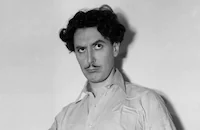
Reginald Gardiner

Arleen Whelan

Lucile Watson

Gene Lockhart

Lloyd Gough
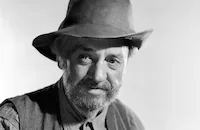
Porter Hall
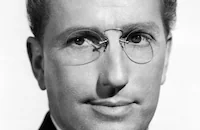
Richard Gaines

Taylor Holmes
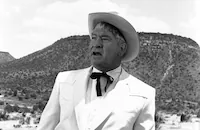
Chill Wills
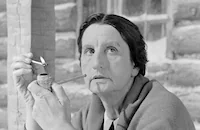
Hope Emerson
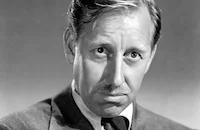
Frank Ferguson
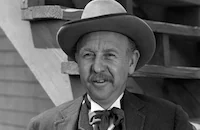
Charles Arnt
Francis Pierlot
Mickey Simpson
Robert Foulk
Charles Woolf
Edwin Randolph
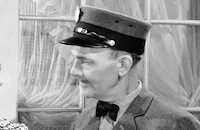
John Butler
Norman Leavitt
Gertrude Michael
Isabel Randolph
John Davidson
Forbes Murray
Perry Ivins
Al Bridge
Charles Flickinger
Charles Tannen
Jack Gargan
Bob Mccord
William Martel
William Cottrell
Gene Garrick
Eddie Coke
William Norton Bailey
David Newell
Franklin Parker
Don Kohler
Wilson Wood
William Newell
James Logan
Caryl Lincoln
Herbert Heywood
Bob Williams
William Haade
Jimmy Ames
Jack Overman
Syd Saylor
Bill Phillips
David Thursby
Lane Chandler
Mike Kilian
Harry Tyler
Percy Helton
Eula Guy
Eddie Parks
Chuck Hamilton
Douglas Gerrard
Tom Costello
Marjorie Wood
Crew
Jerry Bryan
Oleg Cassini
Charles G. Clarke
Hugh Crawford
Alphons Czibulka
Mack David
George Davis
Jay Dratler
Philip Dunne
William Eckhardt
Walter Fitchman
Eugene Grossman
Dick Hamilton
Roger Heman
Frederick Hollander
Arthur Johnston
Fred Kohlmar
Fred Kohlmar
Alex Kramer
Lou Kunkel
Eddie Ledgerwood
William R. Lipman
Thomas Little
Louis Loeffler
John Lee Mahin
Cyril Mockridge
Josef Myrow
Lionel Newman
Ben Nye
Maurice De Packh
Fred A. Picard
Cole Porter
Ad Schaumer
Emmett Schoenbaum
Walter M. Scott
Fred Sersen
Allan Snyder
Frederick Stephani
Marie Walters
Harry Warren
Lyle Wheeler
Joan Whitney
Darryl F. Zanuck

Film Details
Technical Specs

Articles
That Wonderful Urge
Power and Tierney had been co-stars twice before, in Son of Fury (1942), when she was just starting out and he was one of the biggest stars on the Fox lot. By the time they made The Razor's Edge (1946), both were at the top. For both stars, That Wonderful Urge was a rare opportunity to cut loose in a comedy, and they threw themselves into it. It would be the last time Power appeared in a comedy.
Romance was in the air during the location filming of That Wonderful Urge. Tierney had recently reconciled with her husband, fashion designer Oleg Cassini, just a month before their divorce was final. Power, newly-divorced from French actress Annabella, had been involved in a stormy affair with Lana Turner. But as Tierney recalled in her autobiography, "When we went on location to Sun Valley, Oleg flew out for a few days. The title must have been catching. Another visitor to the set was Linda Christian. Ty was in love with her, they were crazy about each other, and I was happy for him." Power and Christian married the following year. Both couples eventually divorced.
Critical reaction to That Wonderful Urge was lukewarm. "The best that can be said," according to Newsweek, "is that Powers takes an incredible beating at the hands of the vengeful Miss Tierney, and some of this can't help but be mildly amusing." The New York Times admitted that "Mr. Power and Miss Tierney are a congenial team and they get adequate assistance from Reginald Gardiner, Arleen Whelan, Lucile Watson and others, plus some beautiful Sun Valley snowscapes...But there isn't much honest amusement." Perhaps the problem was not so much the film as the times. Screwball comedy had begun as comic relief for Depression audiences, especially when they could laugh at the foibles of the rich and silly. But after the horrors of a world war and the challenges of the postwar era, audiences weren't so easily diverted.
Director: Robert B. Sinclair
Producer: Fred Kohlmar
Screenplay: Jay Dratler, based on the story "Love Is News" by William R. Lipman and Frederick Stephani
Cinematography: Charles G. Clarke
Editor: Louis Loeffler
Costume Design: Oleg Cassini, Fred A. Picard
Art Direction: Lyle Wheeler, George Davis
Music: Cyril J. Mockridge
Cast: Tyrone Power (Thomas Jefferson Tyler), Gene Tierney (Sara Farley), Reginald Gardiner (Count Andre de Guyon), Arleen Whelan (Jessica Woods), Lucile Watson (Aunt Cornelia Farley), Gene Lockhart (Judge Parker), Lloyd Gough (Duffy), Porter Hall (Attorney Ketchell), Chill Wills (Justice of the Peace Homer Beggs), Hope Emerson (Mrs. Riley).
BW-82m.
by Margarita Landazuri

That Wonderful Urge
Quotes
Trivia
Notes
A June 1947 Los Angeles Times news item announced that Cornel Wilde was to play the lead. According to documents in the Twentieth Century-Fox Records of the Legal Department at the UCLA Arts-Special Collections Library, some scenes and backgrounds were shot in Sun Valley, ID. William R. Lipman and Frederick Stephani's story was first filmed by Fox in 1937 as Love Is News. The earlier film also starred Tyrone Power and was directed by Tay Garnett (see AFI Catalog of Feature Films, 1931-40; F3.2604). Elements of the story were also used in Sweet Rosie O'Grady. Gene Tierney reprised her role in a Lux Radio Theatre broadcast on March 21, 1949, co-starring Don Ameche.














